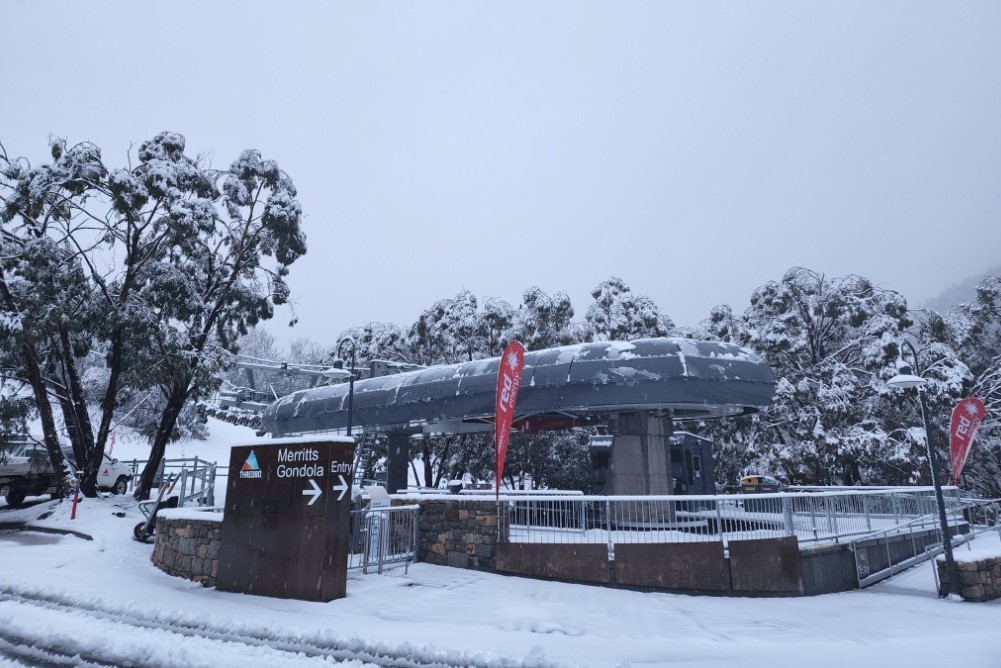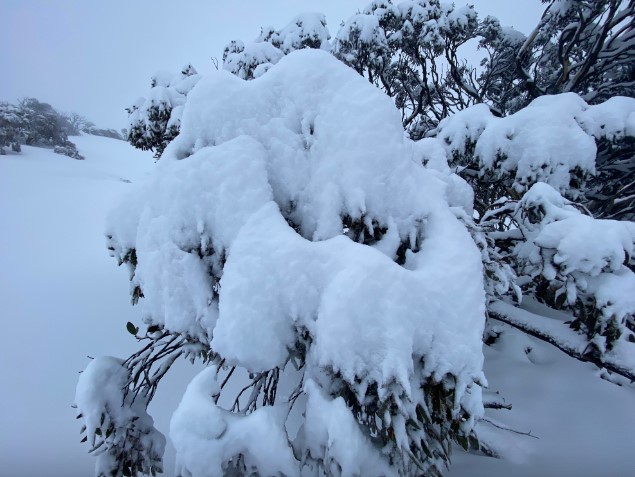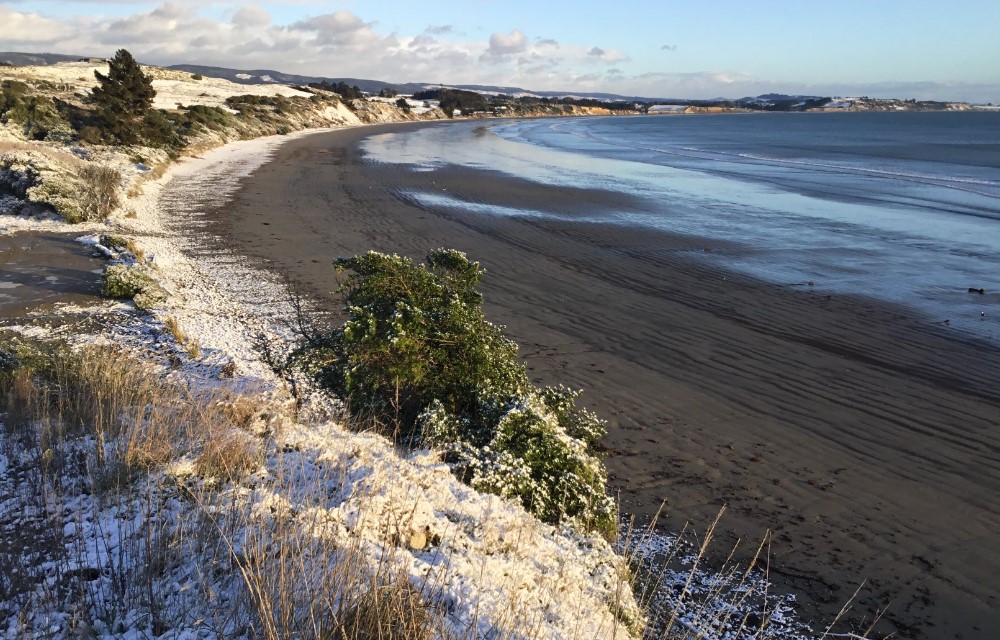Surprise Aus snowfall, snow to sea level in NZ
An unusual dump of spring snow has coated the NSW Snowy Mountains overnight despite temperatures barely reaching zero, while over in New Zealand, snow has fallen all the way to sea level in a strong burst of Antarctic air.
Let's talk about the Aussie snow first. Put it this way, it wasn't powder snow. Powder snow occurs when temperatures are cold and the snow has a low moisture content. The snow that falls is light and wispy like talcum powder. This stuff was more like white cement.

Image: The base of the gondola at Thredbo at just 1370m. Snow was only expected on the highest peaks above 1900m. Source: supplied.
This was an interesting and unusual event. The airmass that made its way over the Snowy Mountains overnight actually had tropical origins, with winds out of the northeast. That would normally mean rain.
However on occasion, precipitation can be so heavy that an unusual phenomenon called the "melting effect" kicks in (we made a video about that last year).
As Weatherzone meteorologist Jess Miskelly explains, snowflakes (which were frozen at higher levels of the atmosphere) fell through a saturated isothermal layer. As the frozen precipitation fell through this layer and melted, the latent heat of melting cooled the surrounds, lowering the freezing level.
So ground-level air that originally wasn't cool enough for snow was actually made cooler by the action of heavily snow falling through higher levels.

Image: Extremely heavy 'white cement' at Perisher on Thursday morning. Source: Steve Smith.
Meanwhile in New Zealand, there's a classic polar southwesterly system. About half of the NZ South Island sits further south than Hobart, so it's not unusual to see sea-level snow in those parts, although this is getting pretty late into the season for that sort of thing.

Image: A bit of snow and a bit of sand on Thursday morning at Moeraki Beach, about four hours south of Christchurch and an hour north of Dunedin on the east coast of NZ's South Island. Source: Mike Pole.
Unfortunately for everyone but back country skiers and snowboarders, ski resorts are now closed in both countries.